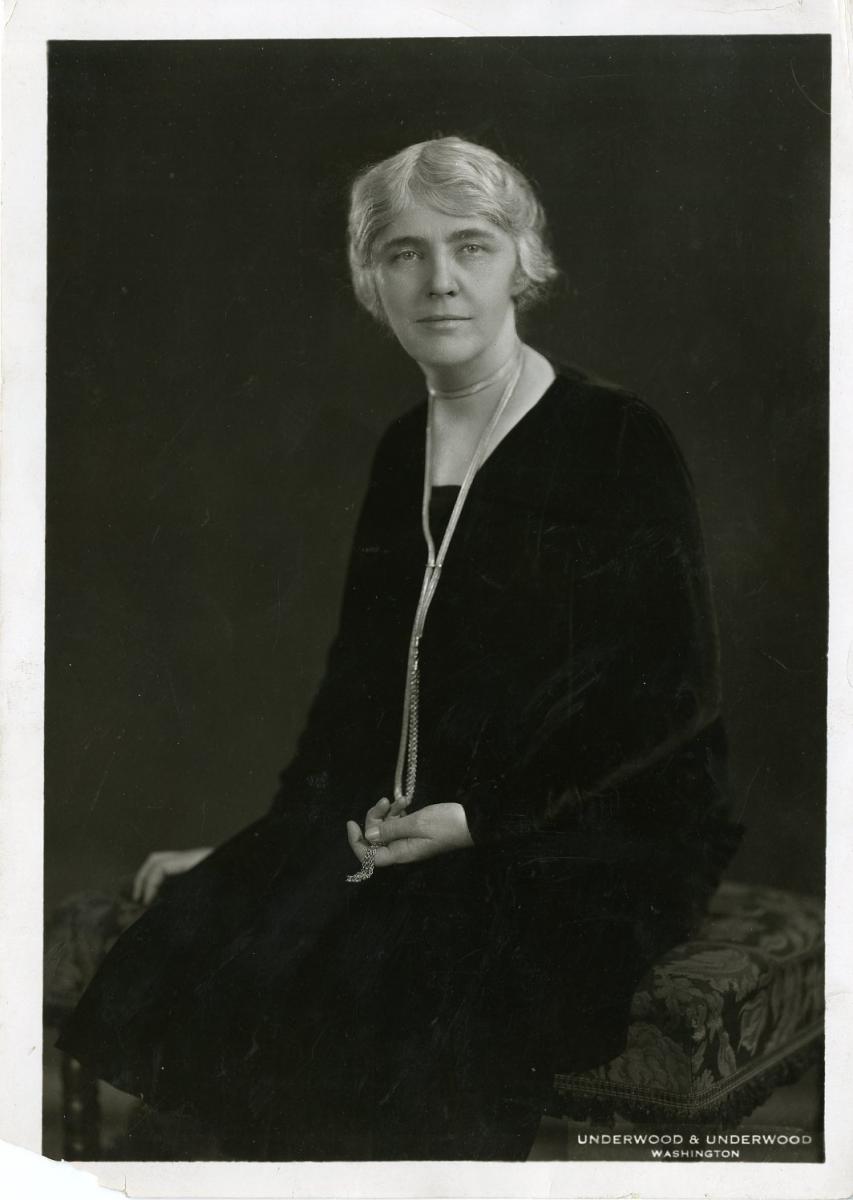Reference
Lou Henry Hoover (1874-1944) was the wife and first lady of President Herbert Hoover.
Research and Reference
-
First Lady Lou Henry Hoover: Herbert Hoover Presidential Library and MuseumBiography of the life and legacy of First Lady Lou Henry Hoover.
-
Lou Henry Hoover: Hoover Institution Library & ArchivesA guide to collections at the Hoover Institution Library & Archives featuring Lou Henry Hoover.
-
Lou Henry Hoover: The 150 Year LegacyA Stanford-wide celebration of an extraordinary alumna.
-
Lou Hoover: Credo ReferenceLou Henry was born on March 29, 1874, to Florence Weed and Charles Delano Henry, in Waterloo, Iowa; her father had wanted a boy and so had named her Lou. Her mother was trained as a teacher, and her father worked in banking. In 1884, the family moved to Whittier, California, and Lou joined her father in his love of outdoor activities. They enjoyed camping, hiking, riding horses, and studying rocks and flowers together. As she matured, he included her in his banking business and taught her how to keep the books, while her mother taught her cooking and sewing. After graduating from high school, Lou studied to be a teacher, earning her certificate at 19. She worked for a time as a cashier in her father's bank and then as a substitute teacher in the Monterey schools until a lecture by Stanford University geology professor, John Casper Branner, changed her life. In the fall of 1894, she enrolled at Stanford, majoring in geology (the first woman to do so). She studied Latin and participated actively in sports on campus. In the geology lab, Dr. Banner introduced Lou to one of his most promising senior students, Herbert Hoover. The two were instantly compatible, and although Hoover graduated in 1895, they maintained their courtship through letters as he established his career in mining. Lou graduated in 1898, becoming the first woman to earn a degree in geology. She searched in vain for employment in the field of geology, but nobody would hire a woman...
Portraits & Perspectives

First Lady Lou Henry Hoover
First Lady Lou Henry Hoover, ca. 1928 (31-1928-f03)
Lou Henry Hoover
Although overshadowed by her higher-profile successors, Lou Henry Hoover was in many ways the nation's first truly modern First Lady. She was the first to speak on the radio and give regular interviews. She was the first to be a public political persona in her own right. And, although the White House press corps saw in her "old-fashioned wifehood," she very much foreshadowed the "new woman" of the era. Nancy Beck Young presents the first thoroughly documented study of Lou Henry Hoover's White House years, 1929-1933, showing that, far from a passive prelude to Eleanor Roosevelt, she was a true innovator. Young draws on the extensive collection of Lou Hoover's personal papers to show that she was not only an important First Lady but also a key transitional figure between nineteenth- and twentieth-century views on womanhood. Lou Hoover was a multifaceted woman: a college graduate, a lover of the outdoors, a supporter of Girl Scouting, and a person engaged in social activism who endorsed political involvement for women and created a program to fight the Depression. Young traces Hoover's many philanthropic efforts both before and during the Hoover presidency--contrasting them with those of her husband--and places her public activities in the larger context of contemporary women's activism. And she shows that, unlike her predecessors, Hoover did more than entertain: she revolutionized the office of First Lady...